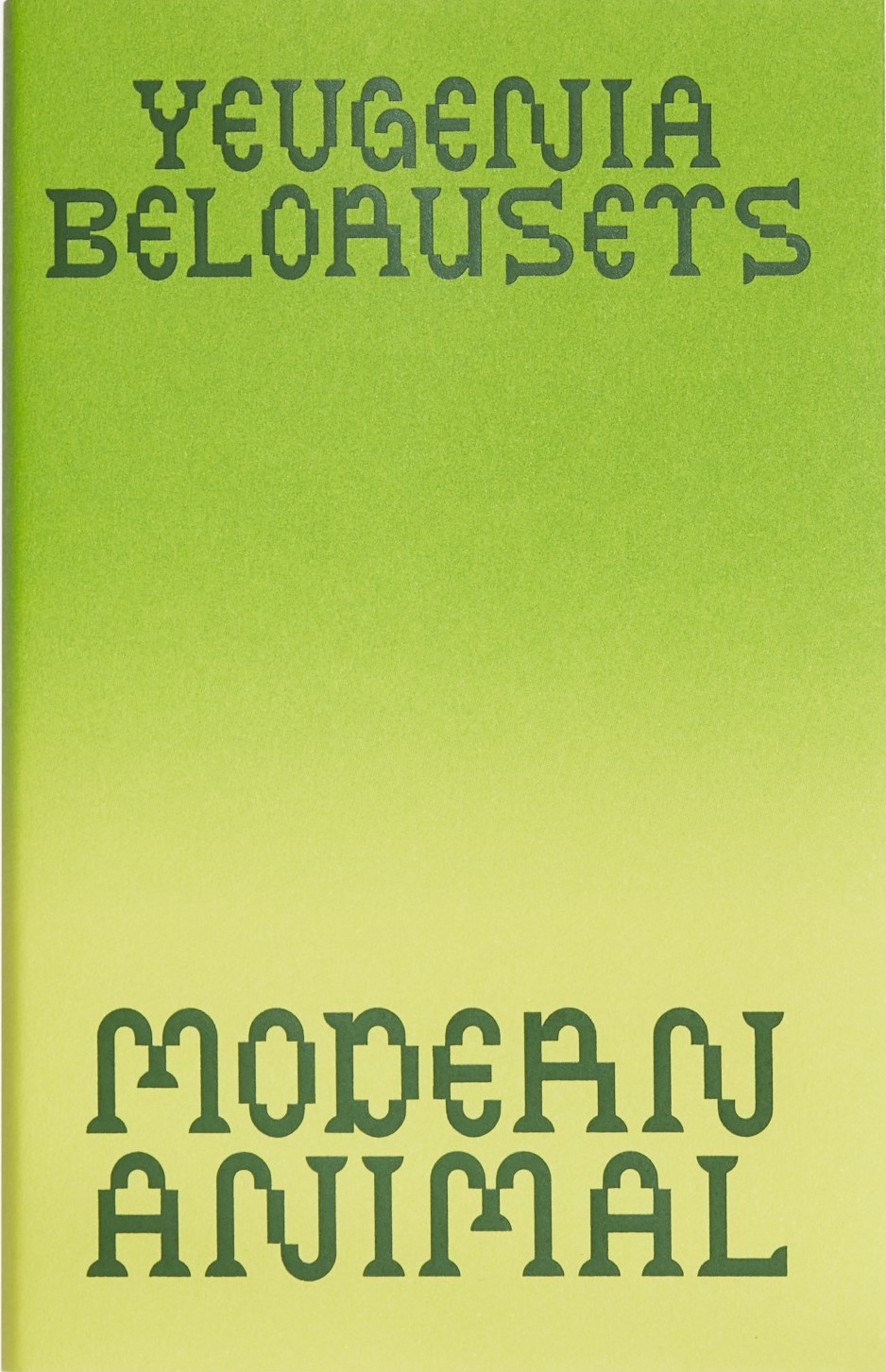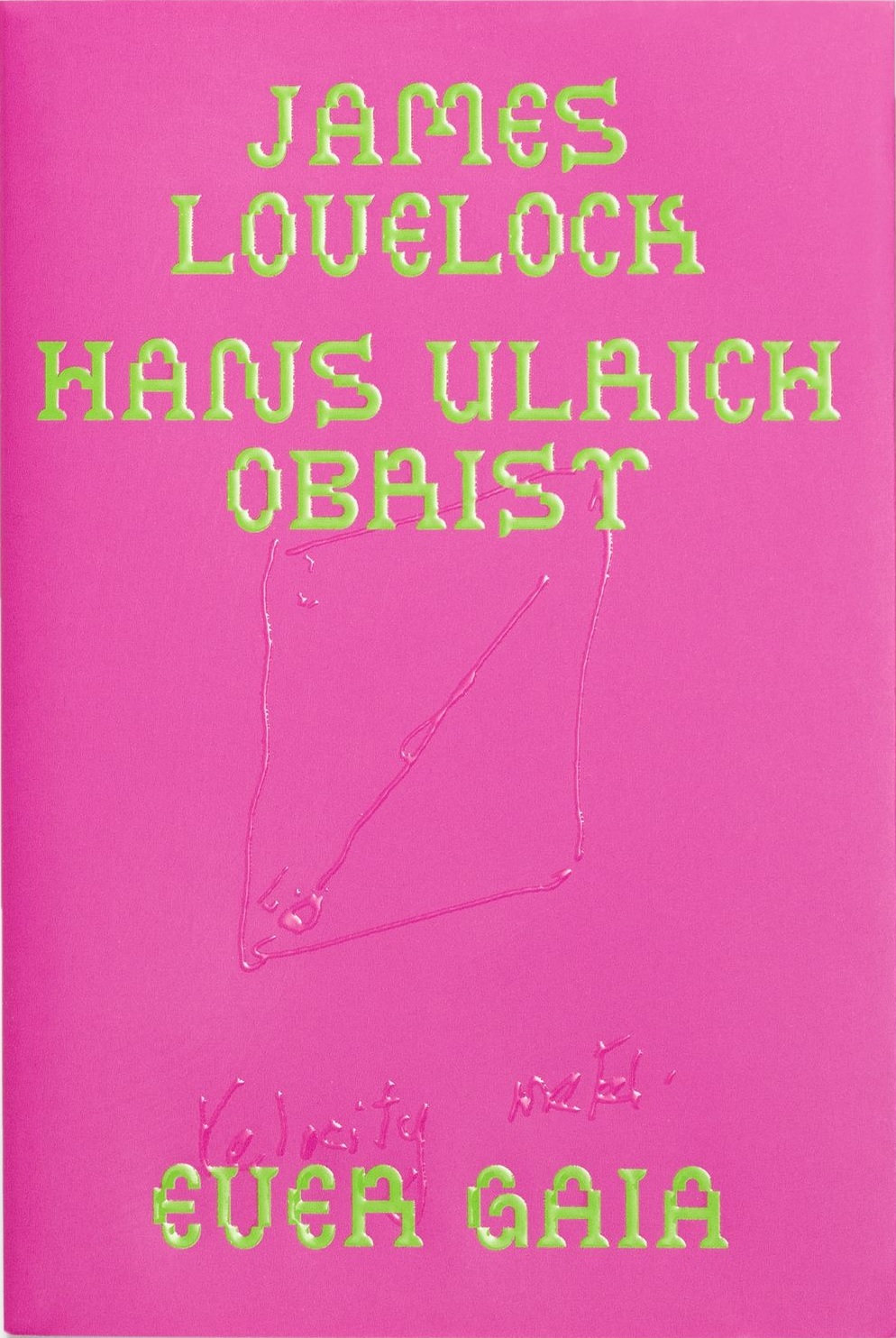


Books in series

Salmon
A Red Herring
2020

F Letter
New Russian Feminist Poetry
2020

Street Cop
2021

Modern Animal
2021

Archipelago
2023

In the Face Of War
2023

Ever Gaia
2023

A Book of My Own
2022
Authors

Hans Ulrich Obrist is Co-director of the Serpentine Gallery in London. Prior to this, he was Curator of the Musée d’Art Moderne de la Ville in Paris from 2000 to 2006, as well as curator of Museum in progress, Vienna, from 1993 to 2000. Obrist has co-curated over 250 exhibitions since his first exhibition, the Kitchen show (World Soup) in 1991: including 1st Berlin Biennale, 1998; Utopia Station, 2003; 1st & 2nd Moscow Biennale, 2005 and 2007; Lyon Biennale, 2007; and Indian Highway, 2008-2011. Obrist is the editor of a series of conversation books published by Walther Koenig. He has also edited the writings of Gerhard Richter, Gilbert and George and Louise Bourgeois. He has contributed to over 200 book projects, his recent publications include A Brief History of Curating, dontstopdontstopdontstopdontstop, The future will be…with M/M (Paris), Interview with Hans-Peter Feldmann, and Ai Wei Wei Speaks, along with two volumes of his selected interviews (Interviews: Vol. 1 & 2). The Marathon series of public events was conceived by Hans Ulrich Obrist in Stuttgart in 2005. The first in the Serpentine series, the Interview Marathon in 2006, involved interviews with leading figures in contemporary culture over 24 hours, conducted by Obrist and architect Rem Koolhaas. This was followed by the Experiment Marathon, conceived by Obrist and artist Olafur Eliasson in 2007, the Manifesto Marathon in 2008, the Poetry Marathon in 2009, Map Marathon in 2010, and the Garden Marathon in 2011. In 2009, Obrist was made an Honorary Fellow of the Royal Institute of British Architects (RIBA). In March 2011, he was awarded the Bard College Award for Curatorial Excellence.
Various is the correct author for any book with multiple unknown authors, and is acceptable for books with multiple known authors, especially if not all are known or the list is very long (over 50). If an editor is known, however, Various is not necessary. List the name of the editor as the primary author (with role "editor"). Contributing authors' names follow it. Note: WorldCat is an excellent resource for finding author information and contents of anthologies.

Born in Rwanda in 1956, Scholastique Mukasonga experienced from childhood the violence and humiliation of the ethnic conflicts that shook her country. In 1960, her family was displaced into the under-developed Nyamata. In 1973, she was forced to leave the school of social assistance in Butare and flee to Burundi. She settled in France in 1992. The genocide of the Tutsi swept through Rwanda 2 years later. Mukasonga learned that 27 of her family members had been massacred. Twelve years later, Gallimard published her autobiographical account Inyenzi ou les Cafards, which marked Mukasonga's entry into literature. Her first novel, Notre-Dame du Nil, won the Ahamadou Kourouma prize and the Renaudot prize in 2012. (from http://www.citylights.com/info/?fa=ev...)

Born Robert Lowell Coover in Charles City, Iowa, Coover moved with his family early in his life to Herrin, Illinois, where his father was the managing editor for the Herrin Daily Journal. Emulating his father, Coover edited and wrote for various school newspapers under the nom-de-plume “Scoop.” He was also his high-school class president, a school band member, and an enthusiastic supporter of the Cincinnati Reds. In 1949 Coover enrolled in Southern Illinois University, and, after transferring to Indiana University in 1951, earned his bachelor's degree in 1953 with a major in Slavonic languages. While in college, he continued editing student papers, as well as working part-time for his father's newspaper. The day he graduated, Coover received his draft notice and went on to serve in the U.S. Naval Reserve during the Korean War, attaining the rank of lieutenant. Upon his discharge in 1957, Coover devoted himself to fiction. During the summer of that year, he spent a month sequestered in a cabin near the Canadian border, where he studied the work of Samuel Beckett and committed himself to writing serious avant-garde fiction. In 1958, he travelled to Spain, where he reunited with Maria del Pilar Sans-Mallafré, whom he had earlier met while serving a military tour in Europe. The couple married in 1959 and spent the summer touring southern Europe by motorcycle, an experience he described in “One Summer in Spain: Five Poems,” his first published work. Between 1958 and 1961, Coover studied at the University of Chicago, eventually receiving his master's degree in 1965. The Coovers lived in Spain for most of the early 1960s, a time during which Coover began regularly publishing stories in literary magazines, including the Evergreen Review. In 1966, after the couple returned to the United States, Coover took a teaching position at Bard College in New York. He also published his first novel, The Origin of the Brunists (1966), which won the William Faulkner Award for best first novel. In 1969, Coover won a Rockefeller Foundation grant and published Pricksongs and Descants, his first collection of short fiction. That year, he also wrote, produced, and directed a movie, On a Confrontation in Iowa City (1969). Coover has maintained an interest in film throughout his career. During the early 1970s, Coover published only short stories and drama, including A Theological Position (1972), a collection of one-act plays, all of which were eventually produced for the stage. He also won Guggenheim fellowships in 1971 and 1974, and served as fiction editor for the Iowa Review from 1974 to 1977. By the mid-1970s, Coover had finished his next novel, The Public Burning; it took him more than two years to find a publisher for the work, which was ultimately cited as a National Book Award nominee. Coover received a National Endowment for the Arts grant in 1985 and a Rea Award for A Night at the Movies (1987), a collection of short stories. While Coover concentrated primarily on short fiction—with the exception of Gerald's Party—during the 1980s, he produced a series of new novels during the 1990s. Coover has taught at a number of universities, including the University of Iowa, Columbia University, Princeton University, and Brandeis University, throughout his career. Since 1981 he has been a writer-in-residence and faculty member of the creative writing program at Brown University. Among the vanguard of American postmodern writers to come of age during the late 1960s, Coover is respected as a vital experimentalist whose challenging work continues to offer insight into the nature of literary creation, narrative forms, and cultural myths. Convinced early in his career that traditional fictional modes were exhausted, Coover has pioneered a variety of inventive narrative techniques, notably complex metafictional structures and ludic pastiches of various genres to satirize contemporary American society and the role of the author. In this wa
